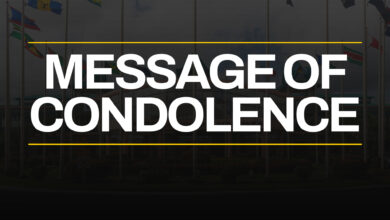GEORGETOWM, Guyana, Stabroek News – The sense of incompleteness which, from the start, had appeared to characterize Egypt’s ‘first revolution’ – including the election of the Muslim Brotherhood’s Mohammed Mursi to the presidency last year – now manifests itself in waves of civil insurrection. Mursi’s civilian presidency may have brought an end to more than sixty years of de facto military rule – the succession of Egyptian presidents (Nasser, Sadat and Mubarak) who followed the Egyptian monarchy were all military men who had sought to re-invent themselves – but, as current events prove, the military continues to be the single most important institution in the country.
Indeed, as the civilian revolt against the Mursi administration grows both more vigorous and more divisive in nature the military is again emerging as the key ‘arbiter’ in a country which, given its lack of experience with western–style democracy, possesses no other institution to handle political conflict.
Setting aside the euphoria that had characterized the ousting of the Mubarak regime in 2011 the Egyptian military quickly installed itself as a barrier between some measure of civil stability and collapse into sectarian chaos. Indeed, during the interregnum between the toppling of Mubarak and the election of Mursi to the presidency, the army had served as a critical caretaker bridge between Mubarak’s ousting and Mursi’s installation as President and even after Mursi had assumed office the resentment of the various religious and secular groups opposed to the Muslim Brotherhood still left his administration dangerously vulnerable to further shocks.
Those military dictators who successively ran Egypt since 1952 may have been no more than autocratic dictators, but they represented, first, a considerable measure of internal stability and, secondly, the assurance that a volatile and unstable Egypt would not create a condition of permanent tension, even armed conflict, in the Middle East. It is Egypt’s – specifically its military’s – role in ensuring a measure of peace in the Middle East by ensuring stability within that made the country a valued ally of the United States. That is why the Camp David Accords that brought peace between Egypt and Israel continues to be regarded as a landmark Middle East diplomatic initiative and by far the single most significant foreign policy accomplishment of Jimmy Carter’s presidency. That is why, too, after he had signed the Camp David Accords, Sadat ceased being a one-time military dictator and became a Nobel Laureate even though his atrocious human rights record at home rendered him altogether undeserving of such an accolade.





